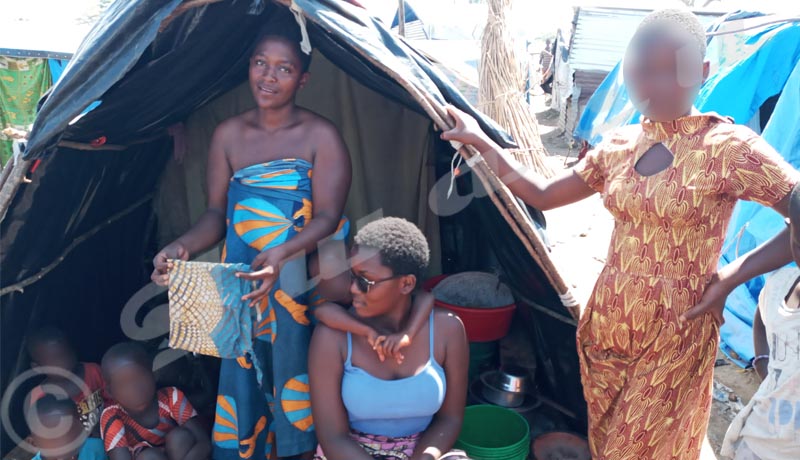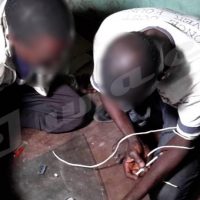On the occasion of the Menstrual Hygiene Day, women and girls living in the Kigaramango IDP site say they go through an ordeal during the menstrual period. They cannot afford sanitary napkins. They use pieces of torn clothes that often cause the infections of the female reproductive system.

Young girls living in the Kigaramango IDP site
“Since we left our households following the floods that struck Gatumba area, our parents are no longer able to buy us sanitary towels. We face a terrible ordeal during our period,” says Jeannette Kakunze, living in Kigaramango site, sheltering Gatumba area inhabitants of Mutimbuzi commune, whose houses were destroyed by flood. It was on the occasion of the Menstrual Hygiene Day.
“We lack clean water to wash our bodies during our period. We are forced to stay at home for fear of staining clothes,” says Kakunze. This student from the Basic School indicates that she no longer goes to school during her period. “I put on pieces of torn clothes that often cause me infections of the reproductive system and friction between thighs,” says Kakunze.
Aline Niyokwizera, a 14 year old girl says her parents are very poor and cannot buy her sanitary towels. “When the menstruation period approaches, I collect pieces of fabric in the sewing workshops to use them,” says Kwizera, adding that this is a very difficult period for her because she often gets sick during this period due to inappropriate pads she uses. “I often suffer from infections,” she says. She is afraid of suffering unfortunate consequences in the future. She calls on humanitarians to provide them with sanitary napkins.
A mother in her forties said she suffered the same problems as her daughters. She especially regrets that their privacy is violated.
The report produced by SACODE in 2019 reveals that more than 540,000 young students do not have access to sanitary pads.
















 IWACU Open Data
IWACU Open Data

